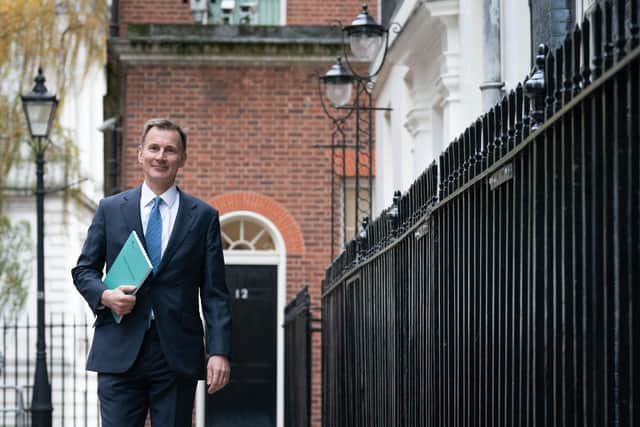Yorkshire's four counties set for top level powers as Jeremy Hunt announces Hull devolution deal
The proposed £400m “historic” devolution deal for Hull and East Yorkshire would see Yorkshire’s population of over 5 million people be served by an elected mayor and having a clear pathway to control over budgets.
The Chancellor yesterday announced that the region, along with Greater Lincolnshire, are set to be given “level 3” devolution deals with powers over skills housing and transport, seemingly putting an end to years of disagreement over how the area should be best served by new devolved administrations.
Advertisement
Hide AdAdvertisement
Hide AdBy 2025 all four of Yorkshire’s counties are set for an elected mayor, with each one able to apply to the Government for similar powers seen in Greater Manchester and the West Midlands.


Cllr Anne Handley, leader of East Riding of Yorkshire Council, said: “Over time, we will be able to negotiate new deals, as other devolved regions have, ensuring we have more funding and power to make important decisions at a local level and put East Yorkshire in control of its own destiny.”
Cllr Mike Ross, Hull City Council Leader, said:“The region has been left behind when it comes to a whole range of government investment, which puts us at a real disadvantage to both the rest of Yorkshire and the country in general.”
Michael Gove, the Levelling Up Secretary, added: “By taking decisions out of Whitehall and putting them back in the hands of local communities, this deal will enable Hull and East Yorkshire to unleash its full economic potential and build upon its strengths in manufacturing and health technologies.”
Advertisement
Hide AdAdvertisement
Hide AdThe announcement comes as part of a range of measures in Mr Hunt’s Autumn Statement, which put tax cuts for individuals and businesses at the heart of the Government’s plan to win back disillusioned voters ahead of the general election.
Mr Hunt cut the main rate of employees’ national insurance by two percentage points, in a tax giveaway worth around £10 billion a year.
He said this will save someone earning £35,000 more than £450 and that the change would benefit 27 million people.
The Institute for Public Policy Research (IPPR) said London and the South East of England will see the biggest gain from the reductions with an average annual gain per working-age person of £316 and £290, while those in Yorkshire and the Humber would see average gains of £214.
Advertisement
Hide AdAdvertisement
Hide AdThe Chancellor also confirmed that a tax break allowing firms to cut their bills if they invest in new equipment will be made permanent, in what he claimed was the “biggest business tax cut in modern history”.
The full expensing regime – which means that for every £1 spent on qualifying investment a firm can cut their tax bill by up to 25p – will be worth almost £11 billion to businesses in 2028-29.
Mr Hunt said high employment taxes “disincentivise the hard work we should be encouraging” as he cut the 12% national insurance rate on earnings between £12,570 and £50,270 to 10%.
“If we want people to get up early in the morning, if we want people to work nights, if we want an economy where people go the extra mile and work hard, then we need to recognise that their hard work benefits all of us,” the Chancellor said.